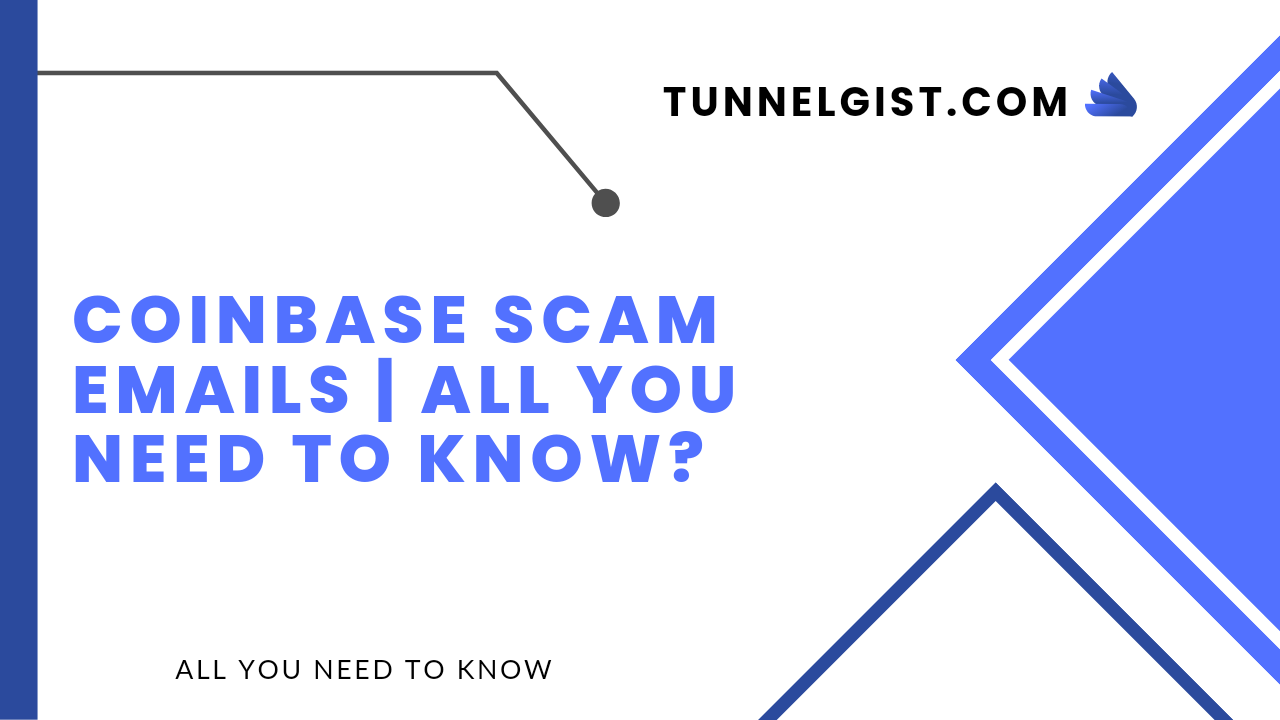
Coinbase scam emails | All you need to know
“Are you getting bombarded with suspicious emails from someone claiming to be Coinbase? Don’t fall victim to the latest scam! In this blog post, we’ll dive deep into what these fraudulent emails are all about and how you can protect yourself against them.
From identifying red flags to taking preventive measures, we’ve got all the information you need to stay safe in the world of cryptocurrency. So grab a cup of coffee and let’s get started!”
Table of Contents
What are Coinbase scam emails?
Coinbase scam emails are becoming more and more common. These days, it seems like everyone is trying to get their hands on Bitcoin and other cryptocurrencies. And, with the price of Bitcoin skyrocketing, it’s no wonder that scammers are trying to take advantage of people.
Coinbase is one of the most popular cryptocurrency exchanges out there. So, it’s no surprise that scammers are targeting Coinbase users. These scammers send out fake emails that look like they’re from Coinbase. They try to trick you into giving them your login information or personal information.
If you get an email that looks like it’s from Coinbase, be very careful. Don’t click on any links in the email. And, don’t give out your login information or personal information to anyone. If you think you may have been scammed, contact Coinbase customer support immediately.
How to spot Coinbase scam emails?
It’s important to be aware of the various types of scams that exist, and to know how to spot them. One type of scam that has been circulating lately is fake Coinbase emails. These emails usually contain a link that leads to a phishing website designed to steal your login credentials. Sometimes they also contain attachments or embedded links that install malware on your computer.
If you receive an unsolicited email purporting to be from Coinbase, be very careful. Here are some signs that it may be a scam:
The email address doesn’t match the one associated with your Coinbase account.
The message contains grammatical errors or unusual wording.
You’re not expecting to receive an email from Coinbase (for example, you don’t have an account with them).
The email includes a link or attachment that you weren’t expecting.
If you’re not sure whether an email is legitimate, the best thing to do is contact Coinbase support directly and ask. Don’t click on any links or open any attachments in the meantime!
What to do if you’ve received a Coinbase scam email?
If you receive a Coinbase scam email, the best thing to do is to report it to Coinbase. You can do this by forwarding the email to [email protected]. Coinbase will then investigate the email and take appropriate action.
In addition, you should never click on any links in a Coinbase scam email. These links could lead to malicious websites that could infect your computer with malware or steal your personal information. If you think you may have clicked on a link in a Coinbase scam email, please contact Coinbase support immediately.
How to protect yourself from Coinbase scams?
If you’re a Coinbase user, you may have recently received an email from a scammer posing as the popular cryptocurrency exchange. These scams are becoming more common, so it’s important to know how to protect yourself.
Here are some tips:
Never click on links in emails from Coinbase or any other exchanges. Always log in to your account directly by typing the URL into your browser.
If you receive an email that looks like it’s from Coinbase but contains typos or grammatical errors, be wary. Scammers often create fake emails that look similar to legitimate ones in order to trick people into clicking on their links.
Never give out your personal information or login credentials to anyone. Coinbase will never ask for your password or two-factor authentication code via email.
If you suspect you’ve received a scam email, forward it to [email protected] so we can investigate and take action if necessary.
Related
Conclusion
Coinbase scam emails are a major concern for cryptocurrency users, but fortunately there are simple steps you can take to protect yourself from them. By monitoring your email carefully and being aware of the warning signs of a scam, as well as avoiding clicking suspicious links or responding to messages directly, you can reduce your risk of falling victim to a Coinbase scam. Remember: never give out any personal information such as passwords or account numbers in response to an email and if in doubt contact Coinbase directly!

![Latest Clean Up Roblox Codes [month] [year]](https://tunnelgist.com/wp-content/uploads/2024/04/ROBLOX-CODES-_20240402_170517_0000-1.jpg)
![Anime rangers Codes [month] [year] – Roblox](https://tunnelgist.com/wp-content/uploads/2024/04/ROBLOX-CODES-_20240402_154736_0000.jpg)
![Asphalt 9 Codes [month] [year]](https://tunnelgist.com/wp-content/uploads/2024/03/WIKI_20240331_152102_0000.jpg)